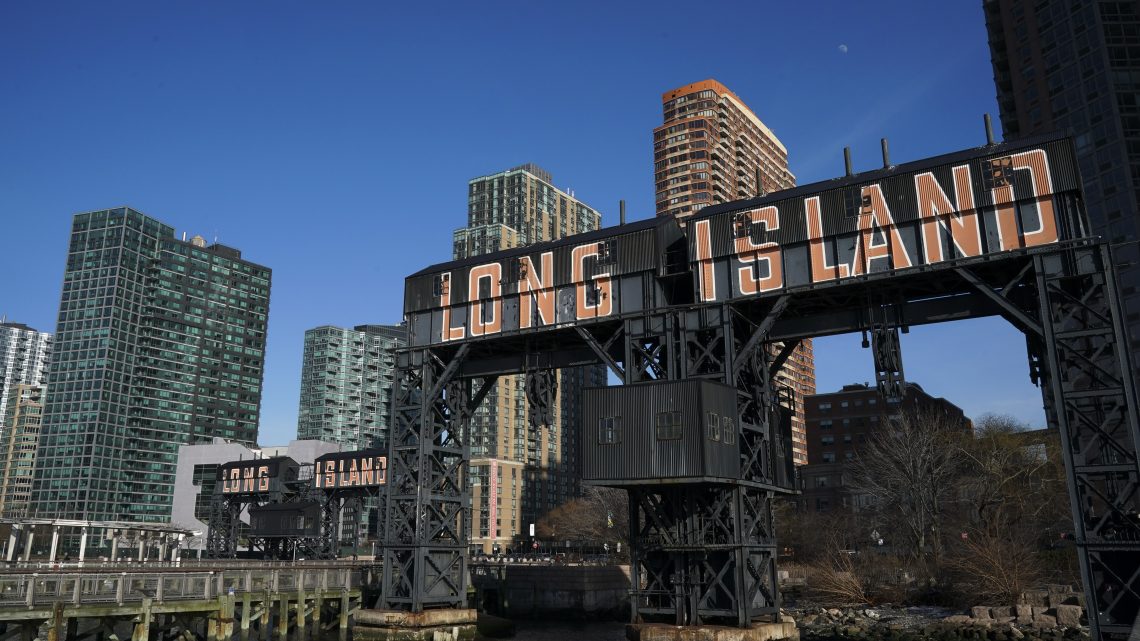
Amazon Bailing Won’t Save New York from Real Estate Hell
February 14, 2019"It is easy to see the beginning of things," Joan Didion wrote in her relentlessly copied and parodied essay "Goodbye to All That," about moving out of New York City, "and harder to see the ends."
Well, one of those ends has come: Amazon announced Thursday that it was scrapping plans to bring a corporate campus to Queens's Long Island City. Goodbye to Jeff Bezos—he never arrived.
Even as residents were successfully lobbying against the project, however, lavish buildings were being erected, brokers and developers dangling apartments in anticipation of legions of well-to-do tech bros setting foot on their side of the East River. Condominiums. High rises. Penthouses that looked out across the water to Manhattan.
In fact, right after Amazon announced its new "HQ2" last November, the Wall Street Journal reported some employees were already buying up local condos—and had started before the project went public. Reports started cropping up about prices soaring. At the beginning of December, the New York Post said the not-yet-launched project had sparked "a condo-buying frenzy."
Even before Amazon made its announcement, Long Island City had become one the most rapidly constructed area in the entire country. But the Amazon news sent it into a noticeable overdrive. "We're the only neighborhood in New York that is a seller's market," Patrick W. Smith, a Long Island City broker for Stribling, told the New York Times in December.
If nothing else, the company pulling out may have bought locals some time in the face of relentless gentrification, while producing a much-needed dose of schadenfreude at the expense of America's luxury class. But New York obviously didn't need Amazon to set up shop to to become a brutal housing market. It's still part of a larger trend of these sorts of big tech companies migrating to, or expanding in, already-hot markets, often serving to help jack up living expenses even more. Indeed, regardless of Amazon's future in New York—and it said Thursday would keep adding personnel there—Google was clearly planning to grow its presence.
Local activists and politicians worried Amazon's new home might further explode rent in an already often-unaffordable city won a reprieve, but maybe not much more than that.
"Whether Amazon was coming or not, over the years we're going to see change," said Jonna Stark, a Long Island City–based real estate broker with Halstead who expressed disappointment at the company's flip-flop. As Bloomberg noted, she wasn't alone. Amazon's withdrawal sent a number of local realtors and brokers into a state of legit despair. (One lamented, for example, that Long Island City would remain "a bedroom community," not transformed into yet another bustling region in this City That Never Sleeps, but would "just [be] a place for Manhattan commuters to sleep.")
But if there's something New York City has proved lately, it's that it definitely has no problem changing its mind. In the beginning of January, for instance, Governor Andrew "Amazon" Cuomo decided the dreaded decision to close down Brooklyn's L train for 15 months would not, actually, occur—at least not exactly. Cuomo's alternative, like Amazon's, has arrived at what seems to be the last minute, if not out of nowhere. It's a bit early to say, precisely, how the real estate market in Long Island City—which some brokers and owners had described as middling before the "HQ2" deal went public—will respond. But Smith, the broker at Stribling, said Thursday he was not worried, nor was he all that shocked. He mentioned that before thew news broke, he had repeated, over and over again, that "Amazon was not a done deal."
"I have been advising and my agents have been advising our clients to purchase for the right reasons," Smith said, referencing the fact that "the first condominium here was built in 2006, and the market has more than doubled" since then. "Look, as a resident of Queens, I'm disappointed—I wish Amazon was happening—but at the same time, we have to be very grounded, just as we were after the announcement, recognizing that Long Island City remains a great place for real estate investment. And we might not have those supercharge values that people were expecting, but I think people should continue to see very nice returns."
In other words, this isn't exactly going to destroy the area's housing market, even if it might briefly cool it a bit. This is New York City, after all.
For her part, Stark admitted she didn't yet know what the news was going to do for the short-term market, even as she repeatedly referred to Amazon's decision to pull out of her neighborhood as a "bummer" and a "devastating loss," citing the 25,000 jobs the company had promised, the potential for improved infrastructure, and an expanded community. (The thing about speaking to real estate agents is that, no matter what you're discussing, they're always trying to sell you.)
Stark did, however, concede an important point, albeit one that might have reflected media interest as much as the housing scene: "I've received just as many phone calls and texts today as I did when the news broke that Amazon was coming to Long Island City."
Sign up for our newsletter to get the best of VICE delivered to your inbox daily.
Follow Alex Norcia on Twitter.


